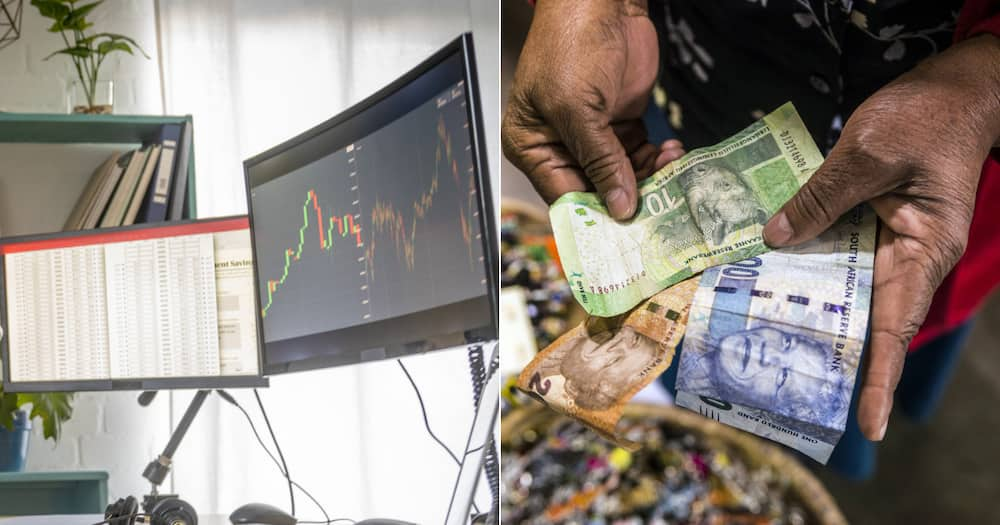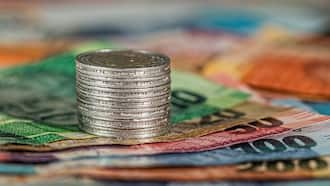Chief Economist 'Nervous' Over Reserve Bank's Repo Rate Hike: "It's Going to Be Bad"
Efficient Group chief economist Dawie Roodt spoke to Briefly News about the South African Reserve Bank central monetary policy committee's decision to hike the repo rate. Here, Roodt conceded that the immediate outlook is not a favourable one but that the move is geared towards promoting economic growth in the future.
PAY ATTENTION: Click “See First” under the “Following” tab to see Briefly News on your News Feed!
PRETORIA - Economists have reacted to the South African Reserve Bank (SARB)'s recent announcement that it will hike the repo rate by another 25 basis points to 4 per cent, upping the prime lending rate to 7.5 per cent.
It comes after the central bank's monetary policy committee voted for the increase last Thursday. As an authority among economic experts, the director and chief economist at Efficient Group Dawie Roodt spoke exclusively to Briefly News to unpack what this all signals for the country and citizens at large.

Source: Getty Images
SARB's primary function is to protect the value of the currency, which Roodt said it does by ensuring that inflation remains within a certain band. In consultation with the central bank, National Treasury sets the inflation target as a benchmark for price stability in South Africa.
"Currently, inflation is on the high side, which means the Reserve Bank needs to do something to make sure it does not exceed 6 per cent, or at least not by much, and that inflation expectation goes down to the above range," said Roodt.
PAY ATTENTION: Never miss breaking news – join Briefly News' Telegram channel!
"Additionally, the Reserve Bank governor [Lesetja Kganyago] recently indicated he'd like to see the range lowered, but not only that, he would like to see a point target. So, instead of 3 to 6 per cent, a target of 4 per cent, for instance."
Inflation-targeting more successful
Roodt, who specialises in fiscal and monetary policy, said he backs Kganyago's stance on implementing point targeting as this is likely to be lower than the current mid-range target. SARB maintains the inflation-targeting approach has been more feasible in permitting a more realistic alignment between its tools and objectives.
"I agree with him because if you have a range target, then the top part becomes the target, basically. But the point target is probably going to be lower than the middle of the range which is currently 4.5. So, he's probably going to go for a 3 per cent," Roodt explained.
"As a hawkish central banker, he wants inflation within the range but probably even lower than it is at the moment. Looking at SARB's monetary policy stance, chances are they will keep increasing interest rates [at least] another four times in a row, accumulating to another 100 basis points or so."

Read also
Economy relies on ANC presidential election outcomes, Ramaphosa needs to stay in power for the Rand's sake
Ultimately, it's possible that instead of 25 basis points or a quarter per cent, as in the recent case, SARB's monetary policy committee will hike the repo rate by another 50 basis points.
Further inflation hikes expected
When asked when this scenario might play out, Roodt's opinion is that the central bank will enforce a gradual approach and not so much shock the market. But he said this spells certain doom for the country's economy and any prospects for growth in the short term as it will have a knock-on effect on spending.
"I don't think they will hike the repo rate half a per cent straight away. Instead, they will prepare the market first before doing so. Of course, this is is going to be bad for the economy," he said.
"If you increase interest rates, people stop borrowing, and if people stop borrowing they stop spending, and if they stop spending the economy stops growing. Increasing interest rates is bad for economic growth.
"So, why would the central bank, knowing that hiking the interest rate is bad for economic growth, increase it anyway? It's because it's much better to have lowish economic growth in the short term and low inflation in the medium to long term as that will eventually lead to stronger economic growth," Roodt added.
Roodt stressed that high inflation always leads to low economic growth, which is a price the country and, of course, citizens need to pay. Postponing economic growth in the short term because interest rates are going up, translates to long term benefits over time due to lower inflation as it is more conducive.
Another repo rate hike on the cards
Elsewhere, Briefly News recently reported that South Africans should make do with the Reserve Bank's decision to hike the repo rate by another 25 basis points to 4 per cent, upping the prime lending rate to 7.5 per cent.
Four out of five members of the central bank's monetary policy committee on Thursday last week voted for the increase, News24 reported. What does this signal for ordinary citizens, who will have to accept the hike as the lowest possible?
Well, for a new application on a home loan of R2 million at the prime rate, the monthly payment will increase by around R300 following the rate hike. Over a full calendar year, this translates to R3 600 more.
Source: Briefly News




